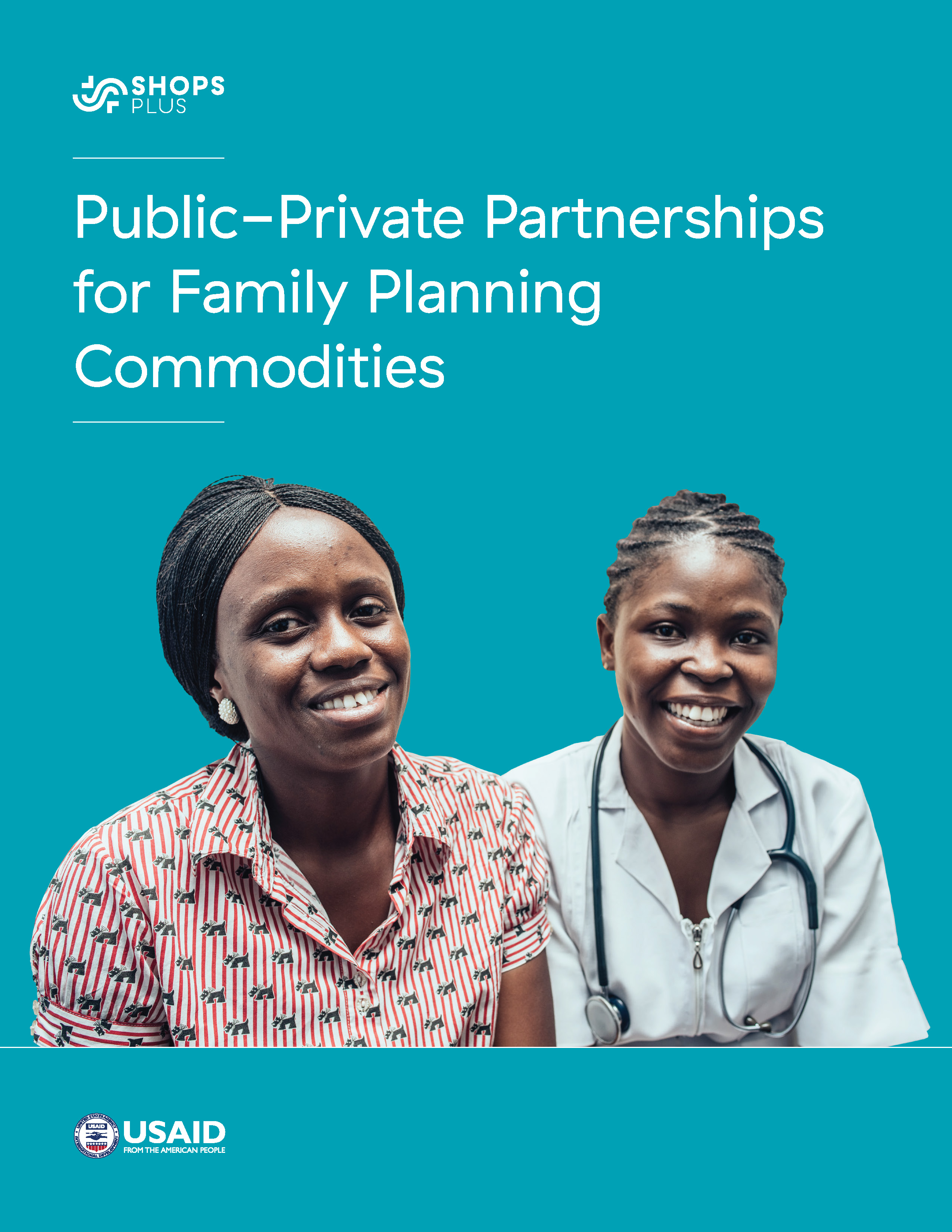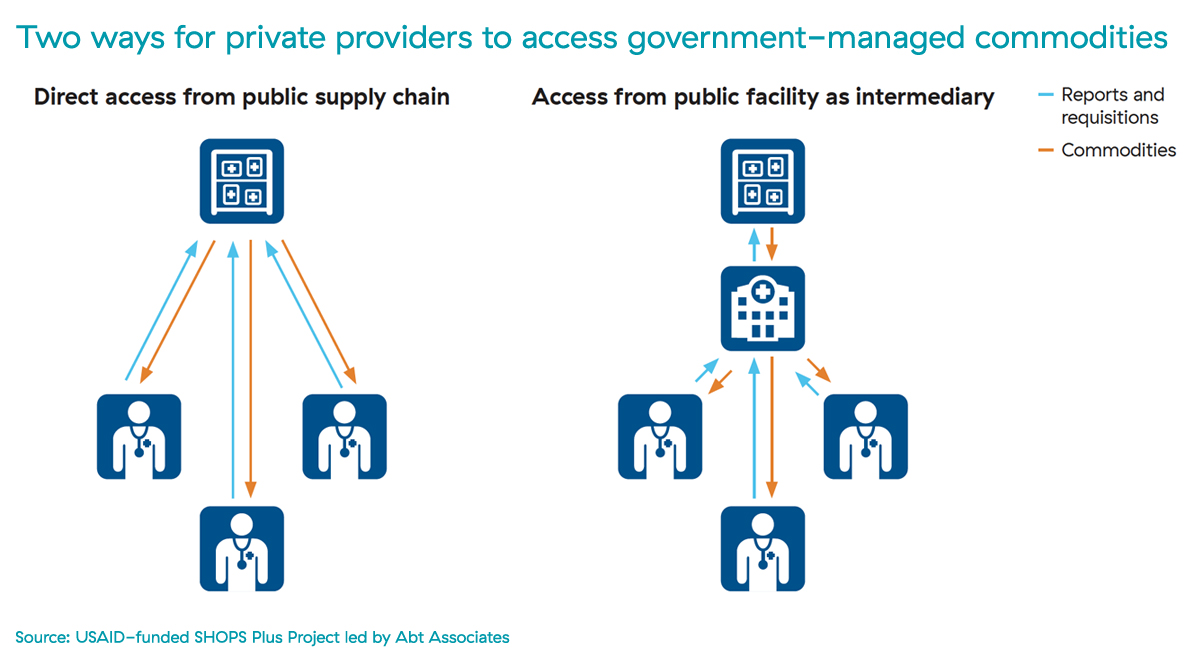Building partnerships for increased access to family planning
Globally, the private health sector is an important source of family planning commodities, services, and information for women and their partners. However, access to long-acting reversible contraceptives in the private sector has been found to be limited due to such challenges as accessing product supplies and price.

In a recently published brief, Public-Private Partnerships for Family Planning Commodities, SHOPS Plus explores the establishment of public-private partnerships in which private providers would receive government-managed commodities as an immediate solution to overcome these challenges.
“Governments are looking for ways to better leverage the full range of public and private health care workers to increase access to affordable, high-quality health products and services,” says Sean Callahan, one of the brief’s authors. “We draw on real world experience to offer guidance on when and how stakeholders can best position themselves for success.”
Findings from a desk-based review of publicly available global research and over 35 interviews with stakeholders who worked on commodity partnerships for family planning in Kenya, Nigeria, and Tanzania revealed:
- Public and private sector roles and responsibilities are generally consistent across countries—the private provider offers products free of charge, submits regular reports to the government, and participates in required training and oversight. The public sector procures, manages, and distributes the commodities and supervises their use to assure quality and address stockouts.
- Two models to distribute government-managed commodities to private facilities are utilized—a direct access model and an intermediary distribution model.
- Both partners can reap benefits—private providers improve and expand their clinical skills, attract and retain new clients, and improve their financial viability of delivering long-acting reversible contraceptives. The public sector expands the reach of public health programs, gains insight into the private sector, and reaches women where they are with affordable family planning options.

Though many governments and donors support the use of public-private partnerships to distribute publicly managed commodities, such partnerships do come with trade-offs. On the one hand, they can lower costs and increase access to family planning and other essential services in the private sector. On the other, they can require a lot of complementary investments in training and oversight, and can be costly to start, maintain, and scale up.
To learn more about the approaches, motivations, and challenges to establishing public-private partnerships for provision of family planning commodities, and to discover when and how donors and governments might decide to replicate, improve, or scale up these partnerships, click here for the full brief.